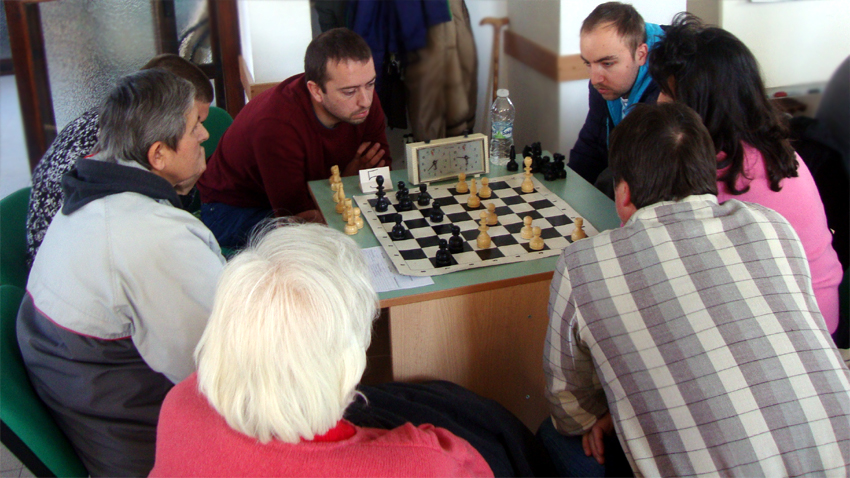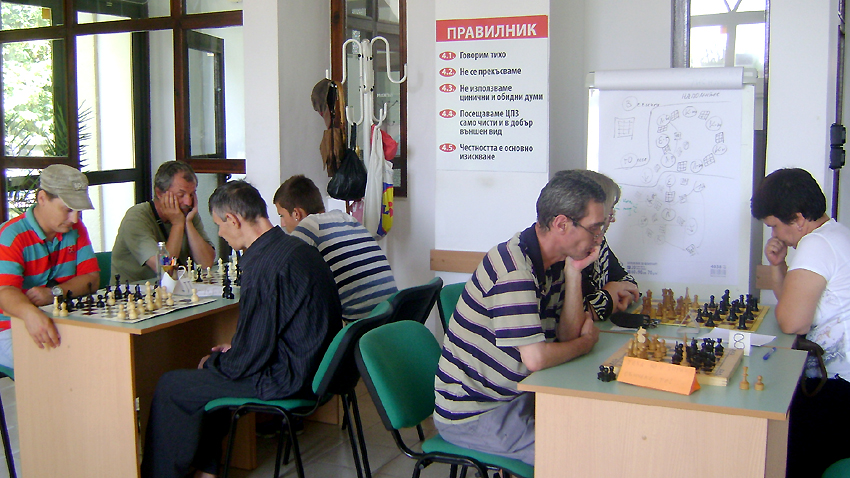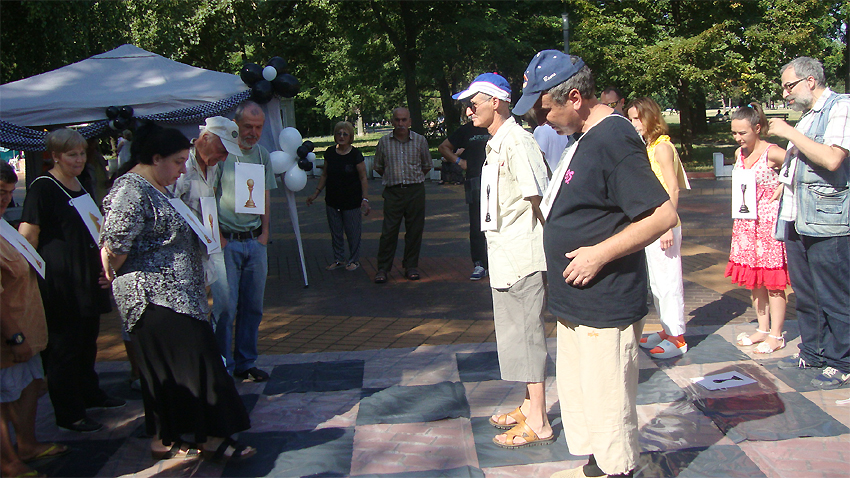‘How do you see chess – as peace or as a war?’ asks Dr. Emil Markov. ‘As a war,’ I answer without any hesitation. ‘Why, can’t it be peace? Both parties helping each other, working on situations that improve their skills… So, chess can be peace as well,’ Markov says and I am surprised. The man is a psychiatrist, a consultant at the Chovekolyubie Centre for Mental Health in the town of Pazardjik – the only place in Bulgaria where chess is viewed as accompanying therapy. Prior to his current occupation Dr. Markov went through the Coaching School in Chess with the National Academy of Sports in Sofia. More from him on chess as a therapy method:
“Any tool can be used for therapy. Pharmacology says: there are no medicines, but doses. Any ingredient can be a medicine or poison, depending on the dose. Start breathing in a more intense manner and you will soon feel dizzy due to the increased oxygen concentration within you blood. High up in the mountain hypoxia causes mental disturbances,” Dr. Markov says.

He assures me that chess can be used both as therapy and diagnostics:
“There, I put the chess board in front of you and we begin to comment how you react and why you react like that. Even a talk on chess explains a lot. A person offered me once a serious sum to tell him what was wrong with his kid, who had this diagnosis. I answered that the help would be for free, if he would play some chess with me. ‘No,’ the man answered. ‘I have given up thinking now.’ That was the end. Once you’ve given up thinking, what do you expect from this world…? Brain is a survival machine. We collect information all the time, process it, make decisions and act. The chess board tells a lot to a therapist due to the other person’s reactions. ‘This game is not for me, it is too complicated’ shows inferiority complex. Does this person want better self-confidence? In such a case he or she is welcome…”

Chess can model your thinking, influencing positively any disease – depressions, Alzheimer, addictions etc. While playing chess one learns a lot about his own personality and about the person in front. This contributes to solving relations’ issues.
 “We draw schemes, named chessgrams where people are circles and their relations are the chessboard. For instance, my patient, her husband, her two grown up sons and I were drawing a board each. When I asked her on which chessgram she felt most loved, she answered: ‘On the one with you!’ – and then started to cry. However, therapy changed things for her step-by-step. Now the woman feels loved.”
“We draw schemes, named chessgrams where people are circles and their relations are the chessboard. For instance, my patient, her husband, her two grown up sons and I were drawing a board each. When I asked her on which chessgram she felt most loved, she answered: ‘On the one with you!’ – and then started to cry. However, therapy changed things for her step-by-step. Now the woman feels loved.”
Chess can be played with live figures as well – the board is 5x5 m and the people on it have to show teamwork. At the same time it is essential that the rules are clear, since contradictory rules result in mental confusion, Dr. Markov says and adds:

“It’s not about the wrong brain biochemistry; it’s about the controversial social rules. One can reach a dead end while trying to comply with these rules messed up. Whether you play or not, a game with contradictory rules means mistakes. Thus the discomfort created might result in psychiatry visits. And what people need is training, not treatment,” Dr. Emil Markov says in conclusion.
English version: Zhivko Stanchev
The Bulgarian Patriarch Daniil has opened the sixth charity campaign "Children draw for children", which is being held in aid of the "Ears, Nose and Throat" children's ward at Sofia's Tsaritsa Joanna ISUL hospital . It is organized by the Cultural and..
Sister Mary Grace is one of seven nuns at the Benedictine convent in Tsarev Brod village in Northeastern Bulgaria. She is 27 and is from Tanzania. The other six nuns at the convent are from Germany, Korea, the Philippines and Bulgaria...
On the occasion of today's Stara Zagora Day, residents and guests of the city are invited to a free tour. During the "Parks tell their stories" tour, they will learn facts and stories about the city's parks. The initiative is part of the series..
Master confectioners will today create the longest bar of chocolate at the Choco Art festival in Plovdiv. All visitors are invited to munch on the giant,..
On the occasion of today's Stara Zagora Day, residents and guests of the city are invited to a free tour. During the "Parks tell their stories" tour,..
Sister Mary Grace is one of seven nuns at the Benedictine convent in Tsarev Brod village in Northeastern Bulgaria. She is 27 and is from Tanzania. The..

+359 2 9336 661
